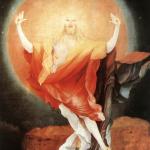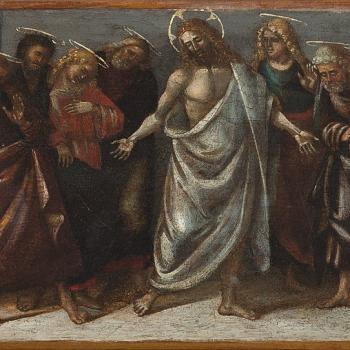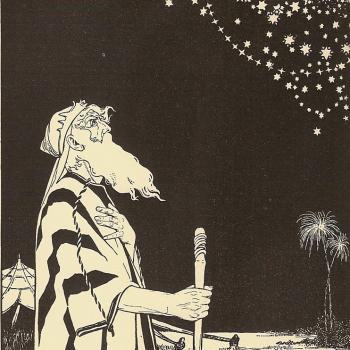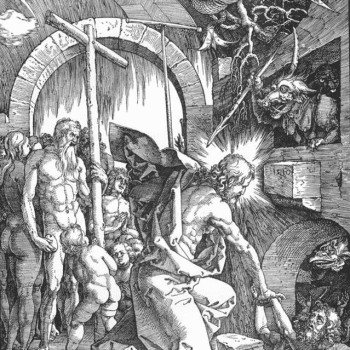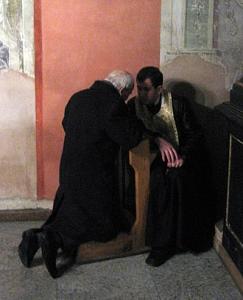
This post reflects upon the following question: What import do the Christian community and theological reflection have for shaping religious experience and fostering resilience in a secular age? A similar question could be asked on behalf of other religious traditions. In this post, I will limit it to my Christian path.
The Secular Age: A Multi-Faceted Migration
It is well-documented that we live in a secular age. Charles Taylor’s magisterial work, A Secular Age, explains in detail how the West migrated from a time where virtually everyone saw themselves as religious, Christian, and members of the church establishment in what he refers to as paleo- and neo- Durkheimian dispensations. At key points, Taylor poses the question: “why is it so hard to believe in God in (many milieux of) the modern West, while in 1500 it was virtually impossible not to?” (Taylor, A Secular Age, 539)
Taylor reflects upon these themes at length, as well as the “buffered” self in contrast to the “porous” self. For a host of people today in our secular age, the universe is closed, not open to what others deem the transcendent. Taylor claims that we all exist in “the immanent frame,” wherein we can analyze life without recourse to outside intervention. While he maintains the immanent frame permits openness and closure, the prevailing Zeitgeist in many quarters is that the “immanent frame” is completely closed. Taylor contends that those who see this position as the only “natural” or “obvious” interpretation are suffering from a “disability” that keeps them from “seeing important aspects of reality.” (A Secular Age, 551; see also the surrounding context of this statement: 543-544; 548-556)
The Secular Age: A Post-Durkheimian Phenomenon?
Taylor writes in more than one work that we now live by and large in a post-Durkheimian configuration, that is, apart from certain outliers, such as particular sub-cultures in the United States. (which Taylor refers to as reflecting “a quasi-agonistic relation to the post-Durkheimian climate,” as illustrated for example in such quarters as the Christian right or marginalized ethnic groups; Taylor, Varieties of Religion Today, 114) Even here in the States, though, we find countless instances of individuals no longer embedded in a hierarchal and predetermined order involving what might be called a framework of mutual obligation. Rather, the society as a whole gravitates to what Taylor in a prior work (quoted above) calls the voluntary arrangements of a “moral order of freedom and mutual benefit.” (101)
That volume is Varieties of Religion Today: William James Revisited. Accompanying notions include mutual respect, authentic self-fulfillment, and expressive individualism. In Varieties, Taylor also reflects on Emil Durkheim’s system and argues that the “religious quest must meet either the paleo- or neo-Durkheimian conditions (a church, or a ‘church’ and/or society).” Those “conditions” have been “abandoned in the new dispensation. The spiritual as such is no longer intrinsically related to society.” (102) We now live in a “fractured” culture in which a near infinite supply of consumer options is available to us. (106-107)*
Taylor considers the incredible “appeal” of “the new individual consumer culture released by postwar affluence” on spiritual formation. That makes total sense when in ages past most populations “were under the grip of what appeared unchanging necessity, where the most optimistic horizon was maintaining a level of modest sufficiency and avoiding disaster.” (102) It is quite unlikely that any of us would wish to go back to those times, nor remain there if that were still our lot in life.
The Merits of the Secular Age
Moreover, not many of us would desire to go back to a cosmic order of enforced conformity once we have profited from the positive features of mutual benefit and respect, authentic self-fulfillment, and expressive individualism. Taylor gets this like few other Christian thinkers do. Like William James himself, Taylor is quite adept at operating in liminal spaces and is like James ambidextrous and generous in his reflections on competing systems of thought. Taylor reflects this dynamic when he writes,
If ours tends to multiply somewhat shallow and undemanding spiritual options, we shouldn’t forget the spiritual costs of various kinds of forced conformity: hypocrisy, spiritual stultification, inner revolt against the Gospel, the confusion of faith and power, and even worse. Even if we had a choice, I’m not sure we wouldn’t be wiser to stick with the present dispensation. (114)
I certainly resonate with Taylor and have no interest whatsoever in returning to a theocratic dispensation, or some other form of Christendom involving a hegemonic connection or “forced conformity” involving the church’s alliance with the state. That said, I see the Christian community and theology as constitutive of religious experience and critically important for cultivating resilience in deeply distressing times.
William James’ Classic Celebration of Individual Religious Experience
With these points in mind, let’s return to James. He prizes the inner or immediate, individual experience over the mediated forms of the collective. He favors progenitors of certain movements as religious geniuses and downplays comparatively speaking the traditions that form around those inspiring figures. Moreover, James champions emotions over doctrine, that is the religion of the heart over religion of the head, or what might be called rational religion and doctrinal formulations. In this way, James’ turn-of-the-twentieth century masterpiece, Varieties of Religious Experience, was prescient. He speaks for many today.
Taylor does not dismiss James, who remarkably expressed “wide sympathy coupled with unparalleled phenomenological insight.” He goes so far as to offer a mild rebuke of contemporary scholarship for neglecting James. Perhaps the exceptional qualities noted above that James embodied are in short supply in scholarly philosophical circles today. (22) I for one was impressed by James’ inquisitive, at times very appreciative, and patient observations of countless religious testimonies without in any way diminishing his probing scientific analysis of the same phenomenon. Contrary to what I had expected in reading Varieties of Religious Experience, James showed incredible respect for the “twice born” (born again type phenomenon), having himself been awakened to spirituality in trying personal times.
All that said, I want to return to the point on community life. Taylor notes:
What James can’t seem to accommodate is the phenomenon of collective religious life, which is not just the result of (individual) religious connections, but which in some way constitutes or is that connection. In other words, he hasn’t got place for a collective connection through a common way of being. (24)
The Primacy of Individual Experience over Community
James does not entirely discount the community. As for many Christians today, it can play a secondary role. For me, it seems that for James, the religious community is a place where individual believers can freely go in the hope of enhancing their spiritual experience. However, community does not play a constitutive and even sacramental role in shaping religious experience. (See also Taylor, 24-25)
The Prizing of Religious Experience over Doctrinal Reflection
For all James’ intellectual brilliance, he minimizes theological reflection. We find in his work the “exclusion of theology from the center of religious life.” Taylor takes issue with such minimization and connects it to his accompanying critique regarding James’ view of the community’s importance: “Just as the life can’t be separated from its collective expression, so it can’t be isolated from a minimum of express formulation. The faith, the hope are in something,” (26) or we might say, in someone.
Consumer Culture, Religious Experience and Suffering
I wonder how religious experience apart from the constitutive and sacramental role of the community and theological reflection cultivate resilience amid severe suffering in our secular age. Will mutual benefit, authentic self-expression, and religious experience devoid of cognitive content and community hold us together if, and when, we are in danger of no longer benefiting from our consumer culture and fall below the level of “modest sufficiency” and experience “disaster” noted above? This is a very existentially relevant question for my family and me today. How about for you?
Here I call to mind Lesslie Newbigin’s analysis of the impact of consumer culture on religion today:
Different religious traditions lose their capacity to be the binding element of societies and become instead mere options for religious consumers to select for their own private reasons, reasons which are not to be argued about. Thus “democratized,” religions enter the marketplace as objects of subjective choices in much the same way as brands of toothpaste and laundry soap. (Lesslie Newbigin, “Religion for the Marketplace,” in Christian Uniqueness Reconsidered: The Myth of a Pluralistic Theology of Religions, ed. Gavin D’Costa, 152.)
Christian Community, Doctrinal Reflection, and Resilience
Subjective choices certainly have their place, as do brands of toothpaste and laundry soap. But subjectivity and the spiritual equivalent of consumer products are not sufficient to hold us together when enduring extreme suffering and trauma. Christian community and doctrinal reflection are important features that help to foster resilience.
I will return to this subject in future posts. For now, I ask: “How might Christian community and theology help us guard against the extremes of hopelessness and naïve optimism and foster resilience in our individual Christian lives as Jesus’ people in the face of suffering and trauma throughout the year in our secular age?”
***************
*For a critical, constructive analysis of Taylor’s trifold typology involving Durkheim as developed in A Secular Age, see Robert Bellah’s article, “After Durkheim” at The Immanent Frame. There he writes: “The immediate problem with Taylor’s typology for a profoundly Durkheimian sociologist like me, is that a post-Durkheimian social form is a sociological impossibility.”




